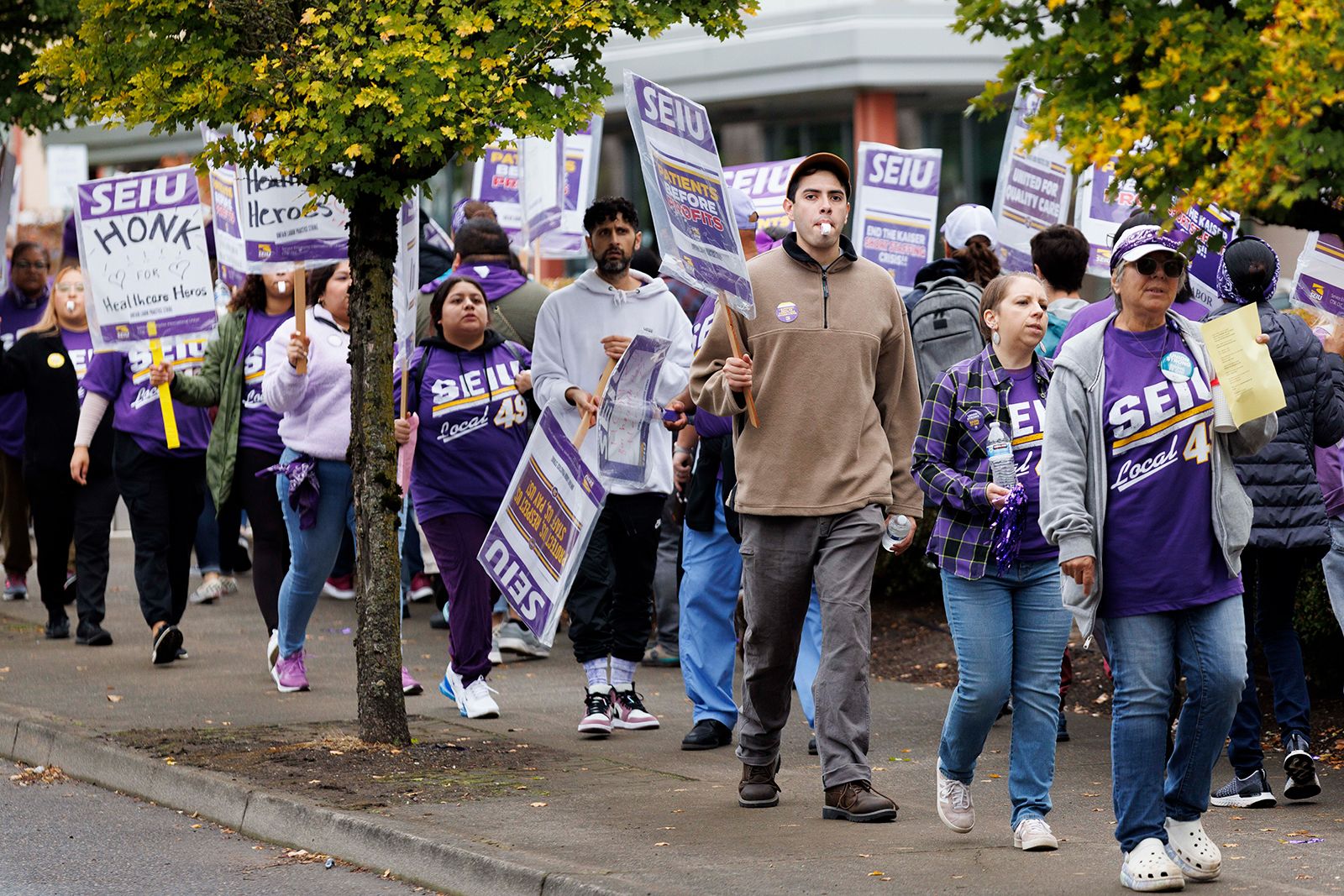Kaiser Permanente Employees Resume Work Post Historic Three-Day Strike, Further Work Stoppage Looming

Ending of Record-Breaking Health Care Strike
As we witness a historic moment in the health care industry, more than 75,000 employees of Kaiser Permanente marked their return to work post a landmark three-day strike. However, an even larger, longer work stoppage could potentially be on the horizon.
The unprecedented work stoppage, touted as the largest in the history of the US health care sector, lasted for three days. The strike failed to reach a conclusive labor contract deal by the 6 am PT finish time on Saturday.
A spokesperson affiliated with several unions that represent Kaiser Permanente's diversified workforce, including receptionists, dietary workers, nursing staff, pharmacists, and clinical lab scientists, suggested the possibility of renewed strikes if a deal remains elusive. The union has confirmed that the next round of negotiations will commence this Thursday.
Hope and Expectations for the Upcoming Negotiations
Georgette Bradford, a Sacramento-based Kaiser ultrasound technician and union member, issued an optimistic statement late last Friday. She stated, "Following this historic work action by tens of thousands of frontline healthcare workers, we are hopeful the company will refrain from any further violations of federal labor laws as talks resume on Thursday."
She added that the healthcare workers are prepared to continue their efforts to shield their patients from the hazards of inadequate staffing capacity at Kaiser facilities and to safeguard their rights.
Acting Labor Secretary Julie Su, who earlier visited California to meet the involved parties, will also attend Thursday's negotiations. In a communication to CNN, the Labor Department confirmed her role in assisting the negotiations towards a fair contract for the crucial workforce.
No Room for Complacency
The coalition of unions hinted at the prospect of a 10-day warning following Saturday. This warning could spark off yet another series of strikes in a few weeks if Kaiser continues to commit unfair labor practices and bargain dishonestly.
The largest union in the coalition, Service Employees International Union-United Healthcare Workers West (SEIU-UHW), has pledged for a more formidable and extended strike if a labor contract for more workers in Washington state lapses on October 31. Specific details regarding a potential strike remain under wraps at this point.
A Wave of Strikes Across the Nation
The mounting threat of additional work stoppage comes at a time when the US is witnessing a heightened wave of strike activity in several industries. Workers are demanding better remuneration and benefits in the aftermath of the pandemic. In this regard, healthcare workers are particularly advocating for more secure work environments.
This week's work stoppage marked the first-ever nationwide strike initiative at Kaiser Permanente, ranking among the nation's largest non-profit health plans.
The Impact on Patients
Despite Kaiser making contingency plans for the strike, it's clear that the strike had significant impacts for members and their families. Patients reported issues such as difficulty getting booster shots and scheduling appointments during the strike. In the instances of longer-term strikes, further impacts on patient care would likely ensue, according to John August, former executive director of the Coalition of Kaiser Permanente Unions.
Hiring and Retention Challenges: An Industry-Wide Issue
While the coverage is specific to Kaiser Permanente, it's essential to note that issues of staffing shortages and challenging work conditions are common in the healthcare industry at large. Sal Rosselli, president of the National Union of Healthcare Workers, expressed this sentiment earlier this year. Independent research firm ECRI ranks the industry's staffing shortage as the most substantial risk to American patients.
Comments
Post a Comment